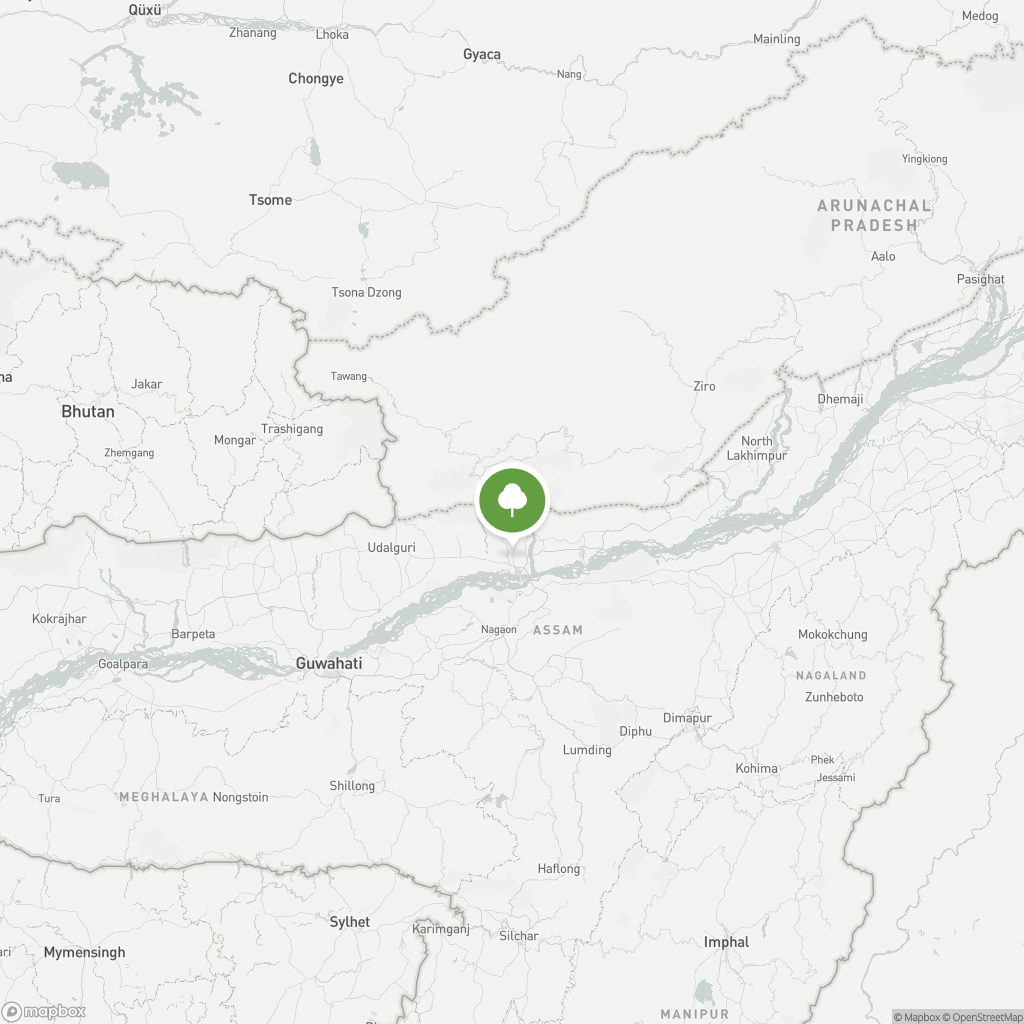Assam - India
Forest restoration and creation
Reforest'Action has joined forces with the NGO Balipara Foundation to restore the forests within the state of Assam, on the eastern edge of India, between Bhutan, China and Bangladesh.



The Indian state of Assam, located in the eastern tip of India, has lost more than 9.5% of its vegetation cover since 2000, due to the increasing conversion of natural primary forests into agricultural plots, and the invasion of exotic species that thrive at the expense of native vegetation. The result is a decline in the health of natural ecosystems, with soil degradation, increasing land desertification, and the depletion of water tables. Faced with a degraded environment, local populations are confronted with decreasing agricultural yields, which goes hand in hand with the collapse of their food security. In the state of Assam, only 8% of young people between the ages of 6 and 23 benefit from a healthy and balanced diet.

Using the Rural Futures model established by Balipara, multiple endemic tree species, including ficus, ramontchi, Indian mulberry and ashoka, are planted within deforested areas with the aim to extend the forest cover that used to exist in the region just a few decades ago. Local farmers are trained to include trees as an integral component of their agriculture through the creation of agroforestry systems. A variety of fruit species, including moringa, lemon and mango, are planted in agroforestry on farmers’ plots to protect the underlying cotton and tea crops, and thus provide local people with additional income from the sale of the fruits and seeds. In addition, fast-growing species such as black myrobolan are also planted in agroforestry to provide communities with a sustainably managed wood resource. This will prevent the need to cut down existing forests. Local communities are closely involved in the project. Throughout the project, farmers are trained in agroforestry techniques by the Balipara Foundation, and equipped with the skills to restore forests and monitor biodiversity. Finally, through forest restoration linked incomes, communities are better able to access universal basic assets such as healthcare and education.


Founded in 2007, Balipara Foundation is an Indian NGO first dedicated to the conservation of Asian elephants across India. After several years in the field, their expertise enabled them to establish the link between saving elephants and preserving their natural environment: the forests. This led to the creation of the Rural Futures model, which aims to restore forests while generating income for local communities. Since the creation of Balipara, over 2,000 hectares of forest have been restored. Alongside these reforestation programs, Balipara has been developing agroforestry projects with local communities for the past 5 years, combining trees and cash crops to generate additional income.











